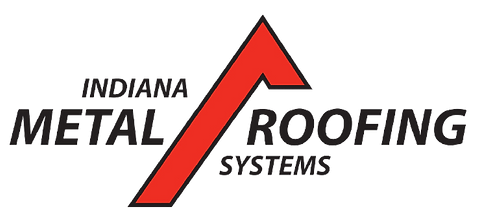Debunking Common Myths About Quality Metal Roofing
- Joseph Justice
- Nov 4, 2024
- 4 min read
Metal roofing is one of the most durable and energy-efficient roofing options available today. However, despite its numerous benefits, it’s often misunderstood due to common myths and misconceptions. Indiana Metal Roofing Systems provides expert insights into why quality metal roofing is a superior choice for homeowners in Fort Wayne, IN, while dispelling some of the most persistent myths.

Myth 1: Metal Roofs Rust Easily
One of the most widespread myths about metal roofing is that it rusts easily, especially in areas with high humidity or frequent rain. However, this couldn’t be further from the truth. Modern quality metal roofing systems are engineered with rust-resistant coatings, such as galvanized steel or aluminum, which protect the roof from corrosion.
In addition, metal roofs are often treated with polymer-based finishes that not only protect them from rust but also maintain their vibrant appearance for decades. Regular inspections and minimal maintenance ensure your metal roof stays in excellent condition, debunking the myth that rust is a major concern.
Unique Fact:
Aluminum is one of the most rust-resistant materials, making it ideal for regions prone to heavy rainfall or coastal environments.
Myth 2: Metal Roofs Are Noisy During Rainstorms
Another common misconception is that metal roofs are excessively noisy during rain or hailstorms. While it’s true that early versions of metal roofs might have produced more noise, modern installation techniques have eliminated this issue. With the use of solid sheathing, insulation, and high-quality underlayments, today’s metal roofs can be as quiet as traditional asphalt shingles.
These layers act as sound barriers, absorbing the impact of rain and reducing noise levels to a soft, unobtrusive background noise. Homeowners need not worry about being disturbed during a storm.
Myth 3: Metal Roofs Attract Lightning
There is a persistent belief that metal roofs are more likely to attract lightning strikes because they are made of metal. In reality, metal roofs do not increase the likelihood of a lightning strike. Lightning tends to strike the highest point in an area, regardless of the material.
If a metal roof does happen to be struck by lightning, it disperses the energy safely through the structure without causing a fire, as metal roofs are non-combustible. This provides an additional layer of safety compared to other roofing materials.
Myth 4: Metal Roofing Is Only Suitable for Industrial Buildings
Some people believe that metal roofs are best suited for industrial or commercial buildings and lack the aesthetic appeal needed for residential homes. However, modern quality metal roofing comes in a wide variety of styles, colors, and profiles that can match any architectural design, from traditional to contemporary.
Homeowners can customize their metal roofs to enhance their home’s curb appeal, choosing from sleek panels, textured finishes, or even metal shingles that mimic the look of tile or slate. Metal roofing is not only practical but also offers aesthetic versatility, making it a great option for residential properties.
Myth 5: Metal Roofs Are Expensive
While the initial cost of metal roofing may be higher than other materials, such as asphalt shingles, the long-term savings make it a worthwhile investment. Quality metal roofing lasts two to three times longer than traditional roofing materials and requires less maintenance over time. Its reflective properties also improve energy efficiency, reducing cooling costs during the summer months.
In addition, metal roofing is 100% recyclable, making it an eco-friendly option for homeowners looking to minimize their environmental impact.
Benefits of Quality Metal Roofing
1. Energy Efficiency
Metal roofs reflect solar heat, reducing the need for air conditioning and saving homeowners money on energy bills. This makes metal roofing an ideal option for hot climates.
2. Durability and Longevity
Metal roofing is resistant to harsh weather conditions, such as high winds, heavy rain, and snow. Its durability means it can last 40-70 years or more, depending on the material and installation.
3. Environmentally Friendly
Metal roofing is recyclable at the end of its life, reducing landfill waste. Many metal roofs are also made from recycled materials, making them an eco-friendly option for sustainability-conscious homeowners.
Choosing the Right Metal Roofing Contractor
To get the most out of your metal roof, it’s crucial to hire a professional contractor who specializes in installing quality metal roofing. Ensure the contractor is licensed, has experience with metal roofs, and offers warranties on their work. At Indiana Metal Roofing Systems, we provide top-notch installation services with a focus on long-lasting performance and customer satisfaction.
Our Key Focus Areas:
High-quality materials and installation
Industry-leading financing options
Transparent pricing
Customer-first approach
Certifications:
A+ BBB rating
5-star Google rating
FAQs:
1. Are metal roofs more expensive than asphalt shingles?While the initial cost of metal roofing is higher, it offers long-term savings through reduced maintenance, increased durability, and energy efficiency.
2. Do metal roofs rust easily?No, modern metal roofs are treated with rust-resistant coatings and require minimal maintenance to prevent corrosion.
3. Are metal roofs noisier than other types of roofing?No, modern installation techniques, including insulation and underlayments, minimize noise, making metal roofs just as quiet as other materials.
4. Can metal roofs be installed on any home?Yes, metal roofing comes in various styles and colors, making it a versatile option for both traditional and contemporary homes.
5. How long does a metal roof last?Metal roofs can last anywhere from 40 to 70 years, depending on the material and installation quality.
For more information about chimney flashing leaks, click here.


Comments